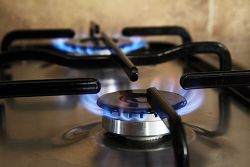

UK Government advisers suggest that new homes should be banned from connecting to the gas grid within six years, to tackle climate change.
They believe:
The Report, from the independent Committee on Climate Change, recommends these changes are made to new homes initially as it is more cost effective. They confirmed it is £4,800 to install low-carbon heating in a new home compared to £26,300 in an existing home.
Also the systems will only work if homes are insulated to the highest standard so little heating is required, which is easier to confirm in new homes.
It is the Committee's job to lay down a pathway for the UK to meet its targets for reducing greenhouse gas emissions by 80% by 2050.
As a surprise to the Committee, emissions from housing increased last year, coming mainly from heating boilers.
The Committee concluded that to meet climate targets all homes in the future will have to virtually eliminate emissions. The Government has committed to investing six billion pounds to improve the energy efficiency of lower income and vulnerable households in a decade.
How big is the problem?
Around 14% of UK greenhouse gas emissions come from our homes, but little is being done to reduce them.
The Committee's spokesperson Prof Julia King commented that "this generation of home-owners is cheating it's children by leaving homes which are completely inadequate for an age of climate change".
Homes are too cold in winter, and as the climate continues to warm, too hot in summer, as well as not meeting building standards due to poor construction.
Poorly built homes will need to be re-insulated in 10 to 15 years, which is approximately five times more expensive than building it properly in the first place.
What should we do with existing homes?
The Committee have stated that tackling existing housing stock is difficult and expensive in the short term, but it will save on gas bills in the long term.
They want the Government to treat renovating UK homes as a national infrastructure priority.
The Report says upgrades and repairs to existing homes should include plans for shading and ventilation to combat extreme heatwaves expected in the future.
They should have measures to reduce indoor moisture, improve air quality, water efficiency and protection in homes at risk of flooding.
What next?
Ed Matthew from E3G commented that "the chancellor must make building energy efficiency an infrastructure investment priority. Failure to do so will lead to entrenched fuel poverty, failure to meet carbon budgets, higher NHS costs and higher energy bills for us all".
He added that the Treasury's reluctance to invest in insulating private homes needs to change given the climate emergency.
A Government spokesperson commented "the UK has reduced emissions faster than any other G7 nation, and moving to a greener, cleaner economy while continuing to grow the economy is at the heart of our modern Industrial Strategy. We will carefully consider the Committee's recommendations".
For more information on this subject, see: